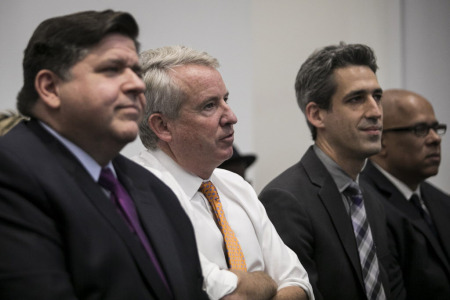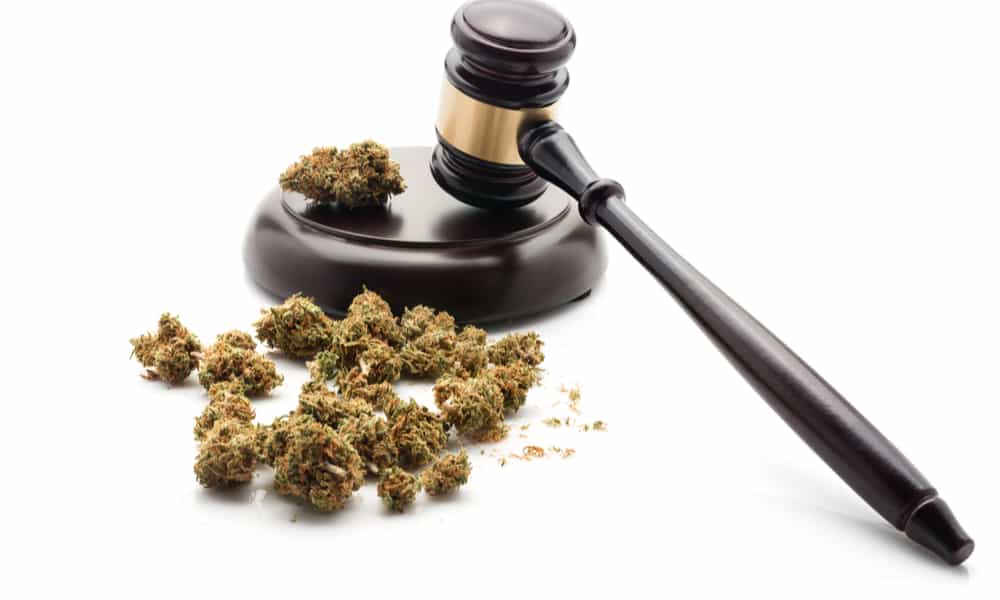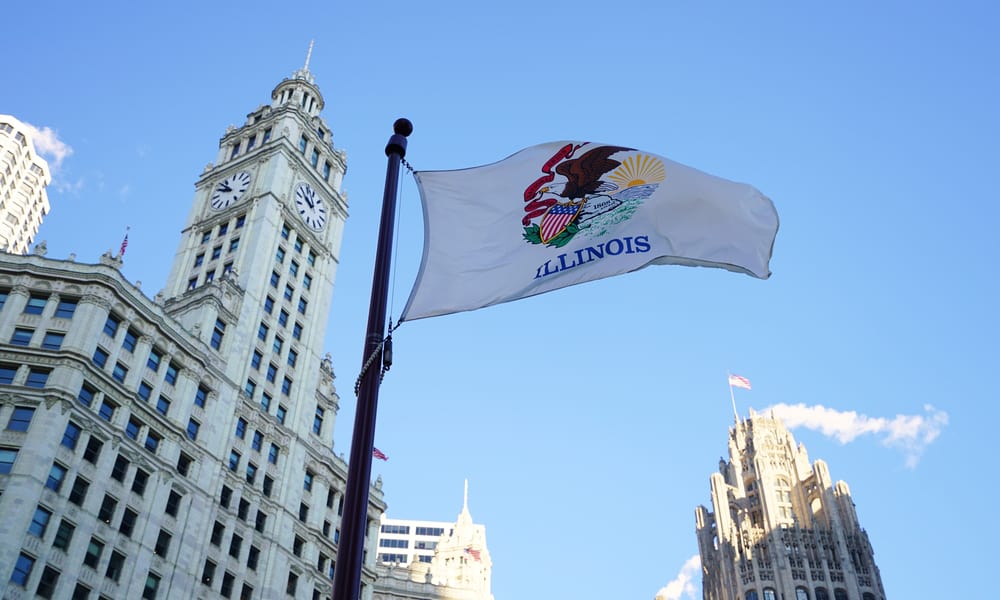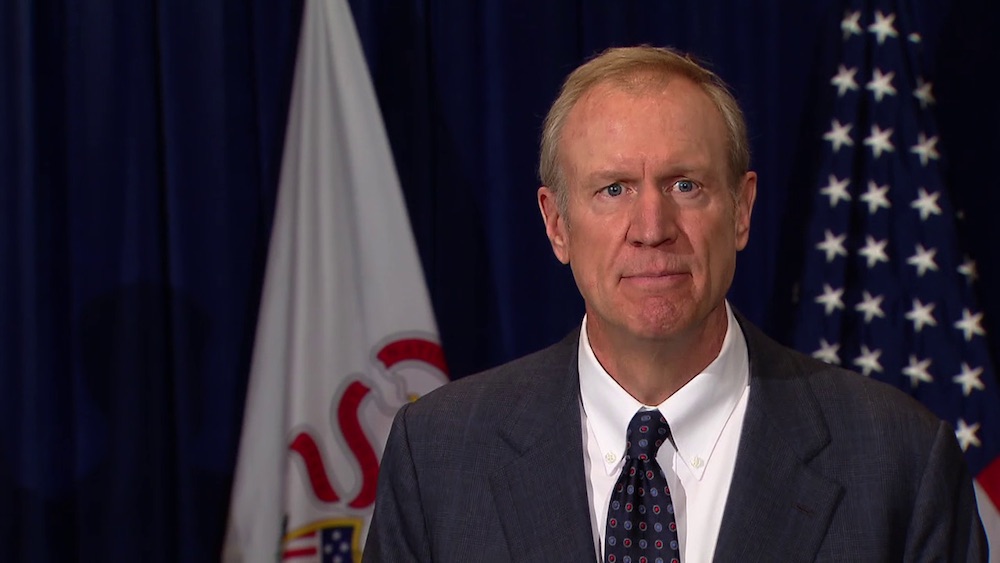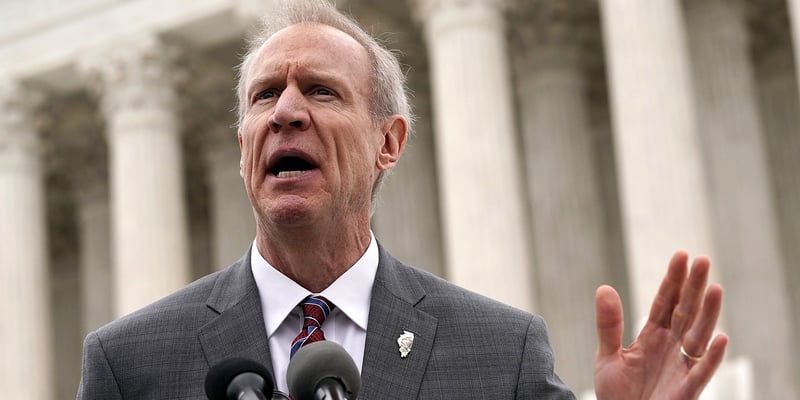What Happened to Illinois’s Medical Cannabis Advisory Board?
Former members and one legislator say the group was quietly disbanded in a deal with Governor Bruce Rauner to keep the medical marijuana program alive.
Last spring, three advocates for the state’s medical marijuana program received a call from Democratic State Representative Lou Lang, the architect of Illinois’s medical cannabis pilot program.
Lang told the group, which included Leslie Mendoza Temple, Jim Champion, and Michael Fine—all members of the state’s now-defunct Medical Cannabis Advisory Board—that the governor had offered him a deal. In exchange for extending the program another three years and allowing two new conditions (post-traumatic stress disorder and terminal illness) to qualify patients for a medical marijuana card, the board must disband.
“We were sold out. We were the tradeoff—but a good tradeoff,” says Fine, one of the medical marijuana patients on the board and the husband of state representative Laura Fine. “We raised no stink [about it at the time] because the program was much more important than our positions on the board." But now he, Temple, Champion, and Lang are speaking out in hopes to expose what they see as the overly political way that medical cannabis matters have been handled in Illinois.
A spokesperson for Bruce Rauner did not comment on the group’s assertions that Rauner requested that the board be dissolved as a condition of signing the bill.
Though the board’s last meeting was in May 2016 and
Senate Bill 10 passed the next month, MCAB was listed as an active body on the state’s website up until a couple weeks ago when
Chicago reached out to the governor’s office to confirm that the group had indeed been disbanded.
Laurel Patrick, a spokesperson for Rauner’s administration, wrote in an email “as the board no longer exists, the website data you referenced was incorrect and has been updated.”
State law originally created the board to evaluate petitions to add new ailments to the program’s list of
debilitating conditions. The time-intensive process involved reviewing hundreds of pages of documents, scientific evidence, and written and spoken testimony from petitioners and other advocates, then voting to recommend new conditions for the program.
“The [MCAB] was created with the intent to allow the medical marijuana program in Illinois to evolve,” says Bob Morgan, the state’s first director of the medical cannabis pilot program, who is now running for state representative. “And the concept that we would appoint medical experts to review developing research regarding the benefits of medical cannabis reflected the understanding that this law was not intended to be set in stone.”
The board, however, could only advise, and ended up not fulfilling its intended purpose, Morgan says. Nirav Shah, Illinois Department of Public Health director, had the ultimate authority to either approve or reject their recommendations. Despite often-unanimous decisions by the board, Shah rejected all recommendations from the MCAB during the two years the board existed.
Rauner’s spokesperson wrote that petitions are no longer reviewed by the MCAB and are instead sent to and reviewed by the director of the medical cannabis pilot program. “Upon review of accepted petitions, the director shall issue a final decision about whether or not the proposed condition is accepted,” she wrote.
Now that the MCAB no longer exists, Lang says “there is no practical mechanism to add conditions unless it’s through legislative action” or action by the courts. At least when the old board existed, he says, there were public hearings and petitioners could publicly state their arguments to add conditions. The media covered the board’s actions and the rejections from Shah were also publicized.
Temple, who practices family medicine in Glenview and served as chairwoman of MCAB, says that when she agreed to serve on the board, she had no idea how political the process would be. Like Fine and Champion, Temple says she quickly agreed to step off the board in exchange for the three-year extension on the program, a couple new conditions, as well as a new process to certify patients to receive a medical marijuana card that puts less pressure on doctors.
The concessions Lang received as part of a deal were good things, she says. But, the entire process made her feel as if this board had put in a lot of time and expert medical consideration for naught, because who and what conditions qualify for access to medical marijuana in Illinois is ultimately a political decision, she says.
Though Senate Bill 10 stated that a the board “shall be reconstituted… to examine debilitating conditions or diseases that would benefit from the medical use of cannabis; and to review new medical and scientific evidence pertaining to currently approved conditions,” in addition to releasing an annual report detailing its activities, according to Lang, no new board has been established. Temple says she applied through the state’s website (before it was updated) to serve on the new board and has heard nothing in response. Patrick did not respond to a question asking whether or not a new board had been appointed by Rauner.
The old board, which was made up of patients and medical professionals from various parts of the industry, including a medical ethicist, neurologist, pediatrician, pharmacist, oncologist, two nurses, and a primary care physician, recommended the state’s Department of Public Health director add at least a dozen new qualifying conditions to the program. Those conditions included autism, chronic pain syndrome, irritable bowel syndrome, PTSD, chronic pain due to trauma, chronic postoperative pain, intractable pain, migraines, and osteoarthritis. Temple says all recommendations made by the board to Shah were summarily rejected and several were rejected multiple times, a sentiment shared by Fine and Champion as well.
“We know who was directing the Department of Health to reject these conditions and his name is Bruce Rauner,” Lang says, adding that Shah told him that the director would not be “allowed” to add any additional conditions to the program, and that elected officials would have to pass legislation if they wanted to expand the list.
A spokesperson for Shah, Melaney Arnold, wrote in an email that the department rejected the board’s recommendations “after reviewing the record for each condition.” She added, “This included the petition itself, the relevant board testimony, and evidence discussed by the board. IDPH found a lack of persuasive evidence that individuals with the condition would benefit from the use of medical cannabis.”
Neither Arnold nor Patrick responded to a question asking whether the rejections were ordered by Rauner. Patrick also did not respond to questions asking whether Rauner generally supported the pilot program and if he was opposed to adding any more qualifying conditions it.
“We didn’t just rubberstamp conditions,” says Champion, a veteran and the state’s first medical marijuana patient. “It was a very distinguished board. I was honored to be on it.”
Temple says the board considered personal testimony and scientific evidence when making its decisions. She says she’s personally certified over 100 patients to receive medical marijuana cards and many of them have had success using the drug to treat their conditions. Though it’s not without its side effects, marijuana carries fewer risks than pharmaceutical opioids.
“I think we’ve done a lot of harm giving patients opioids for pain medication, and now look at where we’re at,” she says, referencing the country’s opioid epidemic. “We have to look at other ways to deal with chronic pain and medical cannabis has been a useful one.”
Both Champion and Fine, who lost his arm in a car accident seven years ago, say the drug has reduced or completely eliminated their reliance on opioids and as a result significantly improved the quality of their lives.
Champion, who says he suffers from fibromyalgia and multiple sclerosis (both of which are qualifying conditions for a medical card in Illinois), in addition to osteoarthritis, says he’s long advocated for a medical marijuana program in the state and helped Lang and other legislators pass the pilot program, which was signed into law by Quinn and officially took effect in 2014.
“Everyone blames cannabis for being a gateway drug, but for me it was a gateway off drugs,” Champion says. “I used to take 59 pills a day to include methadone and morphine and Vicodin. I would take methadone every six hours and if I hurt in between I’d take morphine and/or Vicodin. Thanks to cannabis, I’ve been opiate-free since November 2014.”
Since the rejections were issued, seven lawsuits have been filed by petitioners against the state to add irritable bowel syndrome, migraines, post-operative chronic pain, polycystic kidney disease, autism, osteoarthritis and intractable pain to the pilot program’s list of debilitating conditions. A judge also ordered PTSD be added to the list, but the decision came after the condition was added as part of Senate Bill 10 as an alleged concession to Lang and medical marijuana advocates.
An attorney for the petitioners, Robert Bauerschmidt, says the suits are still pending, and that judges have reversed Shah’s rejections in several cases. He says the state’s attorney general’s office is now appealing those decisions. The attorney general’s office did not return a request for comment.
“I think at this point [Shah] has made it pretty obvious he’s just not going to approve anything ever and the courts would be warranted in going forward and ordering [those conditions] added to the list,” Bauerschmidt say.
Fine says he gets phone calls and emails from people asking him how to get their condition added to the list of debilitating conditions. “I say call the governor, email, whatever. Call a reporter,” he says. “I’m really angry in this regard. You have a lot of people out there needlessly suffering.”
Champion feels similarly. He helped pass the state’s original medical marijuana bill to ease the suffering of people who could benefit from medical marijuana. “My heart goes out to them. I want to scream and holler for them,” he says. “And it makes me furious that Rauner is just telling us all to bend over. I’m sorry. I wish there was more I could do. My hands are tied. Until we get another governor there is nothing I can do.”
I'd offer up another caustic and biting view of suck-ass politicians, but I'm despondent. Everywhere I look in our political system, all I see is self-serving and mendacity.

